
 Flash News
Flash News
Accident at "Shkalla e Tujanit", truck overturns in the middle of the road, driver injured
Vlora by-pass, work delays and cost increases
Milan are expected to give up on the transfer of Granit Xhaka
Inceneratori jashtë funksionit, përfshihet nga flakët fusha e mbetjeve në Elbasan
Accident on the Lezhë-Shëngjin axis, one injured
Basha as the killer of Dichotomy (and why he does it without a future)

Alfred Lela
To untrained readers, the word dichotomy means a division or contrast between two things, which are either presented as opposites or completely different. Italian political scientist Norberto Bobbio has a complete book Left and Right, which deals with the dichotomy of two opposing ideologies. The dichotomy, according to Bobbio and others, has neither disappeared, nor will it disappear, nor should it disappear.
The disappearance of the dichotomy was erroneously proclaimed as the end of history by the American political scientist Francis Fukuyama in 1991. According to him, with the fall of communism, America had no adversary, thus the end of history and the domination of Pax Americana. Samuel Huntington, more or less at the same time, spoke of a clash of civilizations that would replace the ideological confrontation of 1989. History justified the Huntingtonian thesis.
The dichotomy, the confrontation between the right and the left, communists and anti-communists, conservatives and progressives, has been vital for Albania in transition. Although several times, the dichotomy has degenerated in the attempt to annihilate (exterminate) the opponent, still it has kept in the necessary tension both the discourse and the political action in Albania. Even when there have been attempts to mitigate the difference, they have always been of a political nature. We remember here the meeting of Berisha with Majko, Berisha with Nano, etc.
The fading of the dichotomy for economic reasons, or let us use another term, extra-political, leads to the annulment of the political process, degenerates the confrontation, and disfigures the system. The chairman of the Democratic Party, Lulzim Basha, has received the most accusations, which the opponents recognize as the sale of the opposition, but I want to conceptualize them as a fading or dissolution of the dichotomy. Basha had led to a divisive conflict with the dichotomy with the Tent of the spring of 2017, which he concluded with a vague pact with political opponent Rama. The only clear things in that deal were the ministerial posts and some directorates that, more than the political nature of the opposition chief's decision proved the extra-political one. Unconfirmed rumors never officially rumored that part of the Basha-Rama pact was the compensation of about 13 million euros for the palace demolished with explosives in Vlora Bay of the father-in-law of the leader of the Democrats. Whether this can be conveyed as gossip or political war, what is known to be true is that the PD leader during the 2017 campaign, introduced harsh language against Rama and his government and constantly attacked the third party in place, Ilir Meta's SMI.
The lifting of tension, which is the essence of dichotomy, emptied the purpose of political action by making political activists, like bosses, seek to 'play with tears' or 'fix themselves. The catastrophic result of 2017 proved just that. After that, Basha tried to revive, with artificial respiration, the dichotomy, so he did his best to sell his uncompromising rivalry with Edi Rama. To achieve the dissolution of peace and the re-establishment of war he led extreme actions such as the burning of mandates and the boycott of the local elections of 2019. While on stage he played the god of war from behind the scenes, from time to time, came signs that peace on the extra-political ground was continuing. To add to this, even though he had apparently burned all the bridges with the opponent, putting the political process on the dichotomy once again, Lulzim Basha appeared careless as a child in relations with big business. After the November 2019 earthquake, he was accommodated with his family in a villa on the outskirts of Tirana, owned by one of the big businessmen, whom he mentioned in the 'oligarchy' lists from the pulpit of the blue headquarters. He was seen as very close to Shefqet Kastrati and Samir Manen, two dinosaurs of Albanian business, whose logos can be found from ports, airports, highways, construction to sausage kiosks. In a word, not a creative business class, but a conqueror.
The denunciations, by Basha and his officials, had the strange taste of incognito acts: they were done by force and then flew, being overshadowed by subsequent denunciations that seemed to rise high on the agenda to ignore the former. Even if this strange curve of denunciations, taken and left on the street, was fiction, one thing was a fact. Basha's brother-in-law's consulting firm, Landmark Communications, had contracts in its portfolio with Kastrati, Manen, and many others. It has been discussed more than once in the media that the contracts were not for the incomparable talent in the marketing of Basha's family, but a handkerchief for the silence of the DP, when these businessmen became offenders of the public interest.
So even though Basha tried to re-install the political dichotomy, taking it out of extra politics, he fell back into the latter by stripping the opposition of its essence and conceptuality: the battle for the public interest.
All these shocks and hesitations in political action, and confusion in public opinion, led to the outcome of the April 25 elections. It is close that Edi Rama's all-around power has got its hands on elections. But what people blame Basha for is the impossibility of making the difference big enough that no manipulation would change the result. Knowing that dichotomy is not a part-time course in politics, but a data of the general, from which not even America of global theater can emerge, however, different results could not be expected.
The April 25 elections gave the dichotomy another final blow. For the first time in 30 years of elections, the opposition could not keep the 8-year cycle of change of government alive. Although with a problematic government and full of scandals, Edi Rama received a third term, until that day unprecedented.
This is the reason, I believe the main one, why the re-introduction of Sali Berisha on stage produced an inconvenience for some and enthusiasm for others. Berisha was not seen as the one who brings power, who re-circulates the Epoque belle of the power of the right, who shows Rama's place, and so on. All this may be a little, but what Berisha revived was the hope of restoring the dichotomy. People, by nature, want to know where they stand, who is on their side and who is in front, who is white (like them) and who is black) like the others. If Lulzim Basha shook this system, which is as vital as life itself, Sali Berisha was his memory and guarantee.
The dichotomy is not the only need of Democrats, right-wingers, or the opposition in general. It is a necessity for the socialists themselves. You can face, all day today, in Tirana uncoordinated socialists in the turbulent waters of the lack of opposition. Especially for the high socialist exponents, the disappearance of the dichotomy is at least confusing. The lack of a strong opponent leaves them exposed to the whims of their boss and unnecessary within the four-year cycle of power. Having no danger in front of him, Rama does not need his own. This lowers them in his eyes.
The Socialists also demand, consequently, the return of dichotomy. Without it, they are like fish without water. In the absence of dichotomy, only two people bloomed, Rama and Basha.
Paradoxically, in this murder of the dichotomy, both Rama and Basha have had the unstinting American help. The same benign force that fully entered Albanian political life, to reactivate the dichotomy that Enver Hoxha had killed in the late 1940s, executed him himself in four long years of anguish culminating in the non-grata proclamation of the former ally, Sali Berisha. Of course, with the generous help of Edi Rama and Lul Basha.
For this, as for nothing else, Lulzim Basha has no political future. He can hold the keys, locks, doors, and seal of a party, but finds it impossible to create a majority political action. He has gone against the nature of things and now faces the most unforgivable of opponents: the nature of things.
Latest news








Golem and Qerret without water at the peak of the tourist season
2025-07-01 21:09:32

Euractiv: Italy-Albania migrant deal faces biggest legal challenge yet
2025-07-01 20:53:38
BIRN: Brataj and Fevziu victims of a 'deepfake' on Facebook
2025-07-01 20:44:00

Vlora by-pass, work delays and cost increases
2025-07-01 20:24:29



Milan are expected to give up on the transfer of Granit Xhaka
2025-07-01 19:41:25


The silent but rapid fading of the towers' euphoria
2025-07-01 18:58:07
Donald Trump's daughter says 'goodbye' to June with photos from Vlora
2025-07-01 18:48:47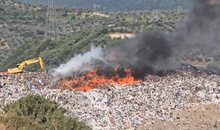

Tirana vote recount, Alimehmeti: CEC defended manipulation
2025-07-01 18:15:05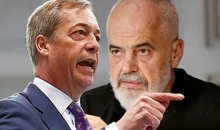

Left Flamurtari, striker signs with another Albanian club
2025-07-01 17:43:14
Accident on the Lezhë-Shëngjin axis, one injured
2025-07-01 17:19:35
June temperature records, Italy limits outdoor work
2025-07-01 17:03:15

Meet Kozeta Miliku, named one of the top five scientists in Canada
2025-07-01 16:32:12
"Arsonist" arrested for repeatedly setting fires in Vlora (NAME)
2025-07-01 16:29:45
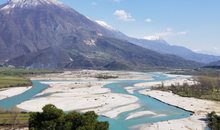
The ecological integrity of the Vjosa River risks remaining on paper
2025-07-01 16:09:40
Heat Headache/ Causes, Symptoms and Measures You Should Take
2025-07-01 16:01:13
UN: The world must learn to live with heat waves
2025-07-01 15:54:50
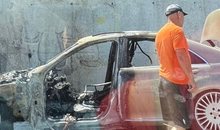
Three cars collide in Tirana, one of them catches fire
2025-07-01 15:38:16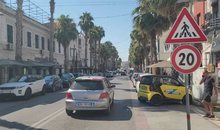

Shehu: Whoever doesn't want Berisha, doesn't want the opposition 'war'!
2025-07-01 15:19:20
Berisha requests the OSCE Assembly: Help my nation vote freely
2025-07-01 15:11:46
Be careful with medications: Some of them can harm your sex life
2025-07-01 15:00:32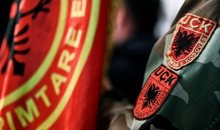

'Golden Bullet'/ Lawyers leave the courtroom, Altin Ndoc's trial postponed again
2025-07-01 14:44:52
EU changes leadership, Kosovo in a number of places
2025-07-01 14:40:01
Should we drink a lot of water? Experts are surprised: You risk hyponatremia
2025-07-01 14:30:20
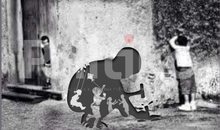

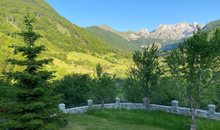
Lëpusha beyond Rama's postcards: A village that is being silently abandoned
2025-07-01 13:41:56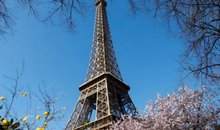
Scorching temperatures in France close the Eiffel Tower
2025-07-01 13:29:35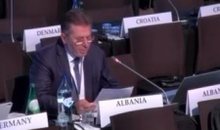
Media: China, Iran and North Korea, a threat to European security
2025-07-01 13:20:12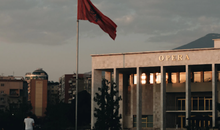
Albania drops in global index: Less calm, more insecure
2025-07-01 13:09:35
Road collapses, 5 villages in Martanesh risk being isolated
2025-07-01 13:03:04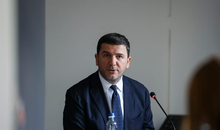
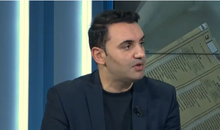
Këlliçi: Opposition action to be decided in September
2025-07-01 12:48:49
Four tips for coping with the heat wave
2025-07-01 12:38:53
Car hits pedestrian on Transbalkan road
2025-07-01 12:27:09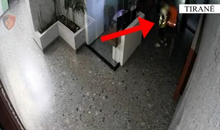
Authors of 9 robberies, Erjon Sopoti and Abdullah Zyberi arrested
2025-07-01 12:15:56

He abused his minor daughter, this is a 36-year-old man in custody in Fier
2025-07-01 11:50:34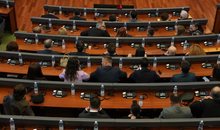
The constitution of the Kosovo Assembly fails for the 40th time
2025-07-01 11:40:08




EU confirms support for the Western Balkans
2025-07-01 10:50:45
Serious in Fier! Father sexually abuses his minor daughter
2025-07-01 10:32:33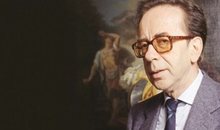
One year since the passing of the colossus of Albanian literature, Ismail Kadare
2025-07-01 10:25:26


They supplied the 'spaçators' with drugs, two young men are arrested in Tirana
2025-07-01 09:54:09
Europe is "scorching", how dangerous are high temperatures?
2025-07-01 09:48:56

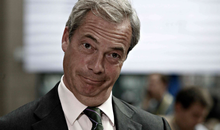
Nigel Farage in Albania: but why?
2025-07-01 09:13:12
Xama: The "Partizani" dossier is quite weak and without facts!
2025-07-01 09:04:47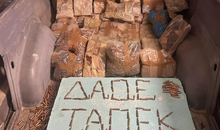

Foreign exchange, the rate at which foreign currencies are sold and bought
2025-07-01 08:35:39
Fabricators again warn of factory closures and job cuts
2025-07-01 08:21:30
Horoscope, what do the stars have in store for you today?
2025-07-01 08:08:59
Scorching hot, temperatures reaching 40°C
2025-07-01 07:57:12
Morning Post/ In 2 lines: What mattered yesterday in Albania
2025-07-01 07:42:59
Recount after May 11, Braho: I had no expectations for massive vote trafficking
2025-06-30 22:54:18

Second hearing on the protected areas law, Zhupa: Unconstitutional and dangerous
2025-06-30 22:18:46



Israel-Iran conflict, Bushati: Albanians should be concerned
2025-06-30 21:32:42

Fuga: Journalism in Albania today in severe crisis
2025-06-30 21:07:11
"There is no room for panic"/ Moore: Serbia does not dare to attack Kosovo!
2025-06-30 20:49:53

Temperatures above 40 degrees, France closes nuclear plants and schools
2025-06-30 20:28:42
Lavrov: NATO is risking self-destruction with new military budget
2025-06-30 20:13:54
Turkey against the "Bektashi state" in Albania: Give up this idea!
2025-06-30 20:03:24

Accused of sexual abuse, producer Diddy awaits court decision
2025-06-30 19:40:44


